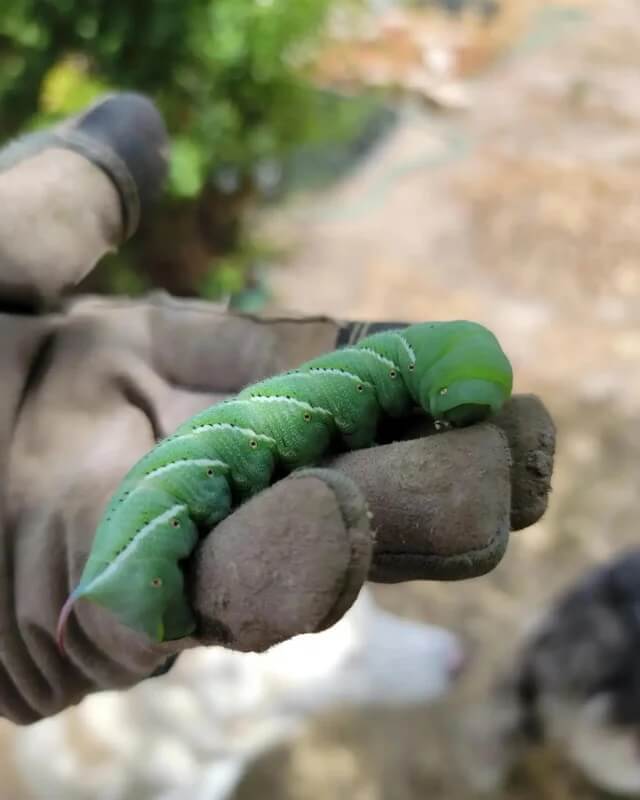Hornworm caterpillars are some of the largest larvae in the world, and many gardeners enjoy marveling over their plumpness even though they need to keep them away from eating their plants.
If those plants include peppers, a big hornworm caterpillar might even be mistaken for one that's ripe enough for picking.
A gardener found that out last year with a massive tobacco hornworm and took to Reddit to share the find.
"While looking to see when peppers were ripening today, I was like that's a weird growing pepp.... that's a d*** caterpillar!" they wrote. "I have only ever seen small 1½ Inch hornworms."

The thick beast seemed to be about three or four inches long, and it was stuffed.
"It never touched the tomatoes, but it definitely ate half of one pepper plant that I didn't even think about because the plants leaves has other issues," the poster said. "So when I went out and all the leaves were gone, it didn't even faze me at all. It was like 'okay, the peppers are good.'"
The caterpillars typically eat tomato or tobacco plants but also consume other vegetation, including peppers, eggplants, and potatoes. If you think your plants might be victims of hornworm caterpillars but you can't manage to spot one, another sign to look for is their unusual-looking feces.
"Also, keep an eye out for peas sized green grenade like looking balls," said the Redditor. "It's hornworm poop."
Handpicking is the best way to get rid of the insects, and insecticides should be used as a last resort. Tilling soil at the beginning and end of each gardening season is also an effective way to interrupt their ability to gain a foothold in your area.
Other users in the r/vegetablegardening subreddit noted the pests could be spied with a UV light.
The poster found two more of the big galoot's friends using that method and then another eight later on.
"Stuff of my nightmares!" one commenter said.
Another noted, "Yeah, you'll find more as they mature. If you see any covered in what looks like white rice leave em. Parasitic wasps use them as hosts for their eggs."
Ladybugs and green lacewings are also hornworm predators, and interplanting herbs such as dill and basil can help keep them away.
Join our free newsletter for easy tips to save more, waste less, and help yourself while helping the planet.









